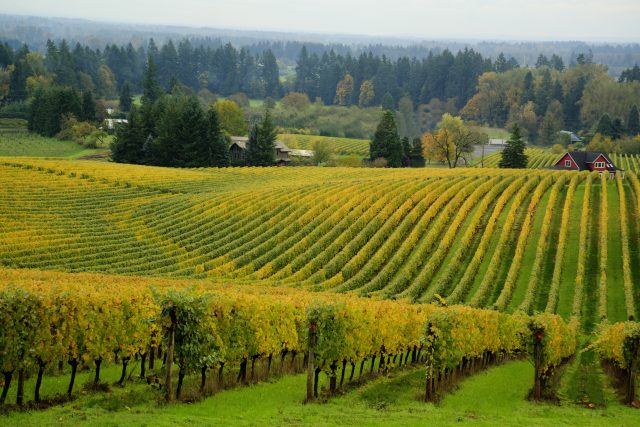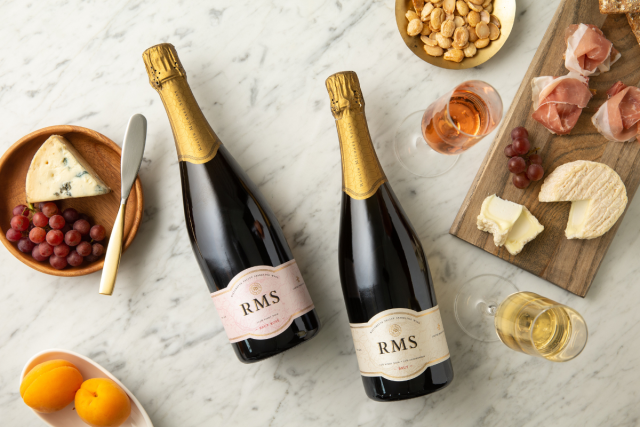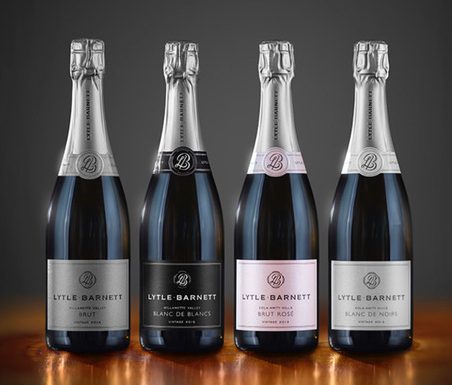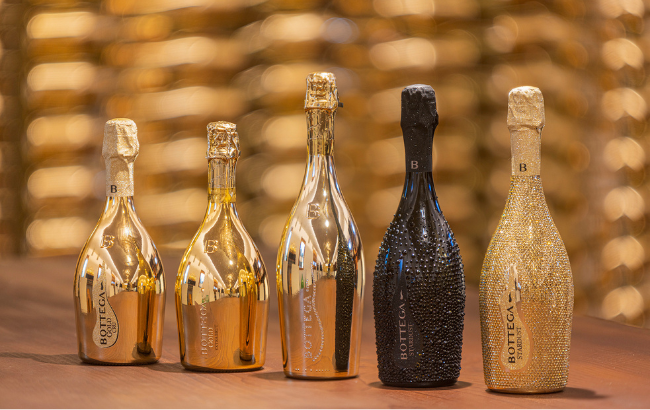Traditional sparklings from untraditional regions: Part 3
By L.M. ArcherIn this third and final series on traditional method sparkling wines produced in untraditional US wine regions, db takes a deep dive into Oregon’s Willamette Valley.

Most consumers recognise Oregon’s Willamette Valley for its world class Pinot Noir and Chardonnay. But this west coast region proves perfect for making traditional method wines, too.
Many in the trade credit legendary sparkling winemaker Rollin Soles for jumpstarting Oregon’s burgeoning bubbles scene. In 1987, Soles founded Argyle Winery in Dundee specifically to produce world-class sparkling wines in the Willamette Valley.
He discovered that the region shares a cool climate similar to Champagne. It also features high-elevation vineyards suitable for growing Chardonnay and Pinot Noir. Over time, Argyle garnered a head-spinning array of awards across red, white, and sparkling categories.
Soles left Argyle in 2013 to focus on ROCO Winery, and his own RMS Brut, with partner and wife Corby Stonebraker-Soles. “Heck, I’m still ‘discovering’ fascinating vineyard locations for my RMS Brut, meaning it’ll only get better!” says Soles.

However, the story of Oregon sparkling wine does not end there. Soles’ protegé, Andrew Davis, also left Argyle at around the same time in 2013. During Davis’ 10-year tenure at the winery, he had encountered many Willamette Valley winemakers eager to make their own house bubbles.
Unfortunately, unlike still wine, sparkling wine requires specialised machinery, bottles, and corks to produce. Sparkling wine also requires more ageing time in bottle to develop its desired complexity.
Subsequently, Davis founded Radiant Sparkling Wine Company. Essentially, Radiant eliminates any costly equipment capital outlay by providing winemakers with traditional method-specific equipment. This includes a riddling gyro-palette, plus a bottling assembly unit for disgorging, topping, corking, caging and labelling. Davis also consults on base wine trials, dosage, and other aspects of production.
“Since 2013, Andrew Davis’ wild idea of starting the Radiant Sparkling Wine Company has become the catalyst to a surge of high-end, traditional method sparkling wines that otherwise would have never got off the ground,” says Andy Lytle, co-founder of Oregon-based luxury sparkling brand Lytle-Barnett, who managed to persuade Davis to come onboard his project as winemaker, with input from consulting winemaker Pieter Ferreira of South Africa’s Graham Beck.
To date, Lytle-Barnett remains Davis’ only private winemaking client, where he fashions Brut, Blanc de Blancs, Rosé, and Blanc de Noirs. All wines age for a minimum of three years on lees; dosage hovers between 2-3 grams of sugar per litre.
Ultimately, Radiant Sparkling Wine Company turbo-charged Oregon’s nascent traditional method wine industry.
“The cost to produce sparkling wine, either in non-vintage or vintage traditional method, is astronomical,” says Lytle. “Radiant provides the equipment and knowledge needed for small to large producers to gain access to a category that would otherwise have been out of reach for most producers.”

From tech to tirage
Jeanne Feldkamp and Dan Diephouse, founders of Willamette’s Corollary Wines, concur. “Andrew Davis, who founded Radiant, has been instrumental in helping the valley produce world-class sparkling,” says Feldkamp.
Partner Content
“Radiant has also been an advocate for knowledge sharing, and community building, to help establish Oregon as a world-class sparkling wine region.”
The couple, both former tech executives, founded boutique winery Corollary in 2017. “We started from a point of just really loving sparkling wine,” says Feldkamp. “We loved how beautifully it pairs with a range of foods.”
However, after visiting Champagne, the two “connected deeply with the patience, care, and thoughtfulness that the best producers put into their wines.”
Hence the birth of Corollary. In 2022, the pair also acquired a 23 hectare vineyard in the Eola-Amity Hills AVA, which they intend to farm regeneratively, and use solely for making sparkling wines.
Currently, Corollary produces about 1,800 cases annually. Styles, varieties, and expressions vary each vintage.
Both Cuvée One and Cuvée One Rosé wines blend various Willamette Valley sites and grape varieties, including Chardonnay, Pinot Noir, Pinot Blanc, and Pinot Gris. The estate’s rosés include a Pinot-specific saignée of Pinot Noir and Pinot Gris.
Single-variety, single-vineyard X-Omni Blanc des Blancs, and Winter’s Hill Pinot Blanc elicit a more linear style. Namaste Vineyard reflects richer, spicier aromatics. Finally, the biodynamic Momtazi Carbonic Rosé offers a “very vinous” fizz suitable for pairing with game and meat.
Barely scratching the surface
Clearly, as consumers’ demand for Willamette Valley sparkling wines escalate, so does the region’s regard.
“It took less than a decade for Radiant to change the sparkling wine scene in Oregon,” says Radiant general manager Thomas Houseman. ”Look at us now!’”
“We are still at the beginning stages of the amazing quality for sparkling wine that the Willamette Valley is capable of producing,” Lytle adds.
Soles offers a final caveat. “After 36 years of crafting traditional method sparkling wine, the potential I saw in the Willamette Valley for consistent, exciting, distinctive, quality styled wines proves true. So much improvement in vineyards and terroir discovery has really set up the next generation of producers, and brought needed recognition by wine lovers. Yet, as a whole, we’ve barely scratched the surface of just how perfect the Willamette Valley is for world-class sparkling wines.”
Read Part One and Part Two of our series on traditional method sparklings from untraditional regions here.
Related news
Will white wine be central to Burgundy's future success in Asia?




